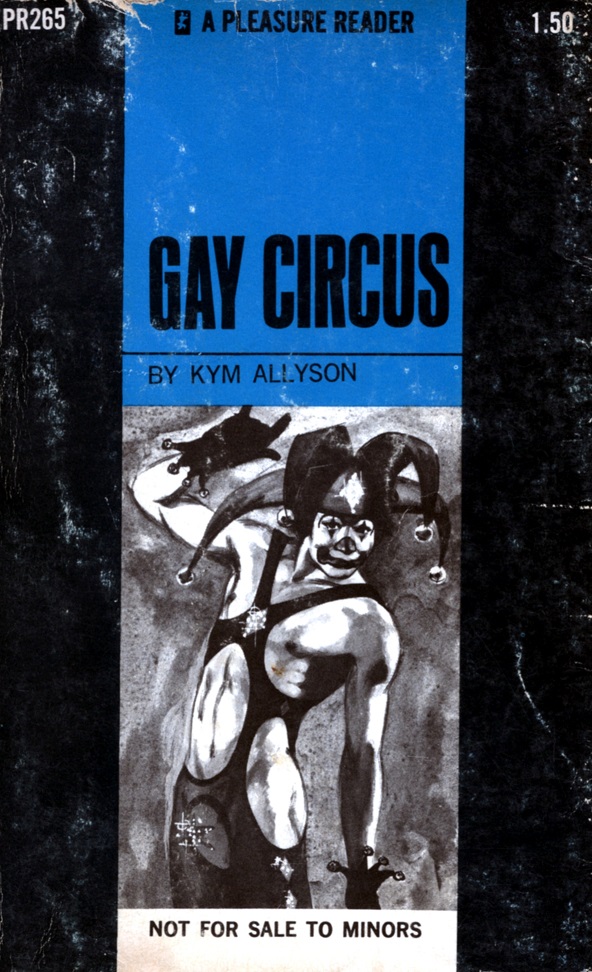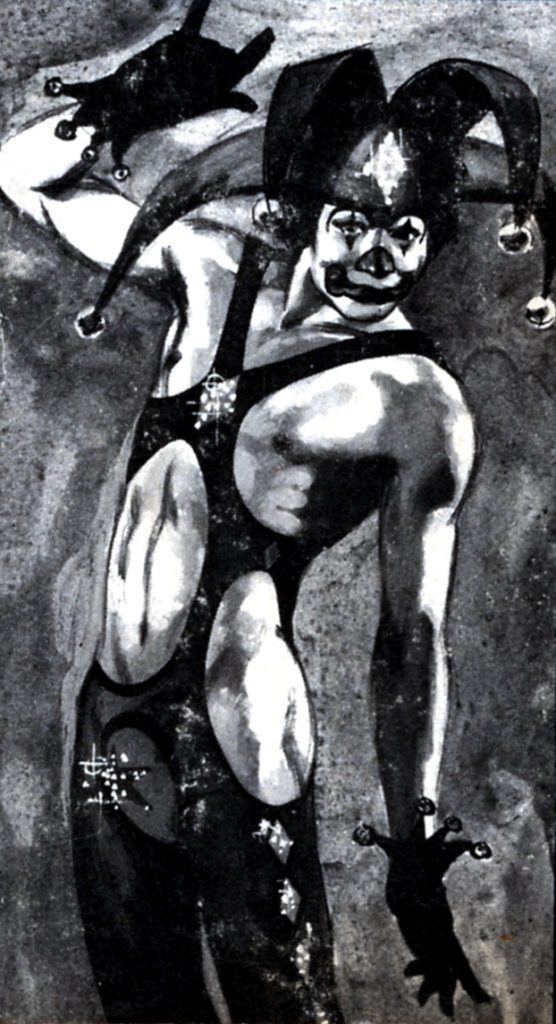
If you’ve ever checked out Pennywise and thought “I’d hit that,” you might be like Terry Adams, the nineteen year-old farm boy from St. Paul and newest recruit at the Gay Circus.
Terry’s life ambition is to become a clown himself. With his big ears “like sugar bowl handles” and theatrical eyes that spontaneously “alternate between happiness and sadness,” it’s like he was made for it. Everyone says he has the face of a clown, “even without makeup.” Being double-jointed is just the cream pie on top.
Contortionist talents are, in fact, what convinces Jethro P. Gay, heir of the Gay Circus, to hire Terry. The audition is noteworthy, with Terry demonstrating just how flexible he can be and the extent of self-inflicting pleasures he can achieve. Marveled by the impromptu performance, Jethro laments that he can’t put on that kind of show under the big top, but still imagines great possibilities for the bendable clown-faced lad.
Officially on the payroll, Terry is introduced to the bizarre personalities of carnival life. This includes sexy acrobats, butch lion tamers, hot-headed little people and fellow clowns of all sizes. It’s Quin Harley who captures his attention and haunts his dreams, however.
Quin is a creepy clown. He rarely speaks, never removes his makeup, and is usually found lurking in shadows. Most agree that his “horribly scarred, ugly countenance” is appalling and suspect there’s a “gross crime” he’s running from.
The scary clown is not so unattractive that the circus hasn’t speculated on his sexuality, however. Rumors circulate that he’s asexual, but then again no one’s made a move to test that theory. Terry reads into Quin’s every expression, trying to pin truth to speculation, and allows his imagination to run wild. There’s a kind, gentle soul behind that creepy clown face, he’s sure of it.
At this point the novel could’ve become a simple romance between a newly liberated boy and his clown of interest, but several sharp turns steer the plot into mystery. This includes MURDER and the introduction of a mysterious fan who sweeps Terry off his feet.
The mystery man, Fred, becomes a groupie, following Gay Circus across the country so he can meet Terry in hotel rooms after each performance. They move fast, with Fred proposing a forever-relationship (too outlandish to speak of gay marriage in 1970, I suppose) after only their second romp.
Terry would say yes, but fears a relationship will ruin his life’s work as a clown. In a sequence of extreme camp, Terry declares his decision while escalating into the throes of climax. “I want’a . . . I want’a be . . . a . . . here it comes . . . a . . . clown . . . A CLOWN!!!”
Though he doesn’t break things off with Fred—they have a good thing going on, after all—Terry can’t keep creepy Quin off his mind. Would Fred really follow the carnival forever just to be with him? Maybe a relationship with someone closer to circus life would be better. Someone like Quin…
But then murder happens, and investigators swarm the big top. No one cares about the dead guy—he was a jerk anyway—but Quin has a clear motive for killing him. And so does Fred. Is it possible that naïve Terry has been swooning over a murderer this whole time?
It all adds up to a Hollywood finale that’s way more romantic than it should be. I won’t say it’s a gay clown The Notebook, but I won’t say it’s not either.
Fun facts about this book:
—Published in 1970 as “adult only” and not for sale to persons under 21. In a post-Fifty Shades society, however, it’s fairly tame. Some queer pulp fiction deserves the warning label, but I think most readers would find Gay Circus just another romance with overly descriptive bedroom scenes.
—“Kym Allyson” is a pseudonym of John Kimbro, who also published bestselling gothic romance as “Katheryn Kimbrough.” His 40-book Phenwick Women series was slated to become a gothic soap opera similar to Dark Shadows, but the project never came to fruition.
—Gay Circus is out-of-print and has become extremely rare. It originally sold at $1.50, but might cost $150.00 or more for a tattered used copy today. Assuming there are any for sale at all.
—Though campy in tone, there is a dramatic moment where Quin seems to share commentary on the gay experience of 1970: “You can’t understand men like me . . . men who live in the lavender shadow of society. You can’t imagine the years of loneliness . . . of emptiness . . . of desire for love . . . and only finding a passing moment of erotica at best. You can’t know the hurt . . . the tears…That’s why I hide behind my makeup” (p125-126).

Thanks for reading! Follow for more reviews of the obscure and unusual…
